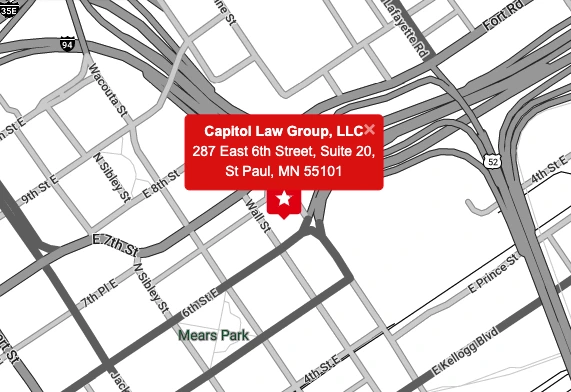A St Paul Criminal Lawyers 4th Amendment Defense in Felony Drug Cases

Felony drug convictions will go on your permanent record and can have long-term effects on your future. In addition to fines, probation, or prison time, you can face employment and financial issues stemming from your conviction for years to come. It is absolutely critical for anyone facing felony drug charges to seek help from a highly skilled St. Paul Criminal Defense Lawyers. This is true whether your charges are for possession, possession with intent to deliver, trafficking, or any other drug-related offense.
Illegally-Obtained Evidence in Drug Cases
A major problem in many drug cases is that the police illegally obtained drug evidence. Police and prosecutors must gather evidence against you in any type of criminal case. The law requires a prosecutor to present enough evidence to prove your criminal charges beyond a reasonable doubt in order to obtain a conviction. If the prosecutor lacks sufficient evidence, they should drop your case or a jury should acquit you.
Because of the evidence needed by prosecutors, law enforcement officers will often do anything they can to obtain evidence of a crime. However, the law imposes important restrictions on officers and how they can obtain and collect evidence. Police cannot simply take whatever they want in any given situation and have a prosecutor admit it against you. Instead, there are rules that dictate how evidence can be lawfully collected and obtained set out in the Constitution of the United States. When officers violate these rules, they also may violate your constitutional rights, which can have important effects on your criminal case and the prosecutor’s ability to use the evidence in question against you.
Did the Police Violate Your Fourth Amendment Rights?
The Fourth Amendment to the U.S. Constitution protects you against unreasonable search and seizure. This means that law enforcement officers do not have the ability to stop you whenever they want without a valid reason, or the right to conduct a search of your or your property without justification. This prevents officers from searching anyone on the off-chance they may possess drugs or other contraband. This is important because the majority of evidence in felony drug cases stem from searches.
Instead, for a search to be lawful, a police officer must obtain a search warrant. Obtaining a warrant requires an officer to demonstrate that they have probable cause to believe that a particular search would uncover evidence of a crime. Once they have a warrant, they may execute it and search any place specified in the warrant. Drug evidence uncovered within the scope of a warrant is usually admissible in court.
In some situations, taking the time to request and obtain a search warrant from a judge is not realistic. Doing so would give a suspect the chance to destroy or otherwise get rid of any drug evidence. For this reason, the law provides certain exceptions to the warrant requirements. For instance:
- If police officers are arresting someone, they can conduct a search of the suspect to determine whether they have weapons or dangerous items within their control.
- If police officers are arresting someone at a traffic stop, such as for DUI, they can search any places in the vehicle that may contain evidence of the crime for which they arrest is happening, but they cannot search places that would only contain evidence of other crimes. For a DUI arrest, officers can search the passenger area for alcohol bottles, but they could not search small compartments in hopes of finding drug evidence.
- If an officer is lawfully in a particular location and there is criminal evidence in plain sight, they can lawfully seize that evidence without getting a warrant and a prosecutor can use it in court.
- If an officer does not have a warrant, a valid exception, or your consent to conduct a search, the search is unlawful and any resulting drug evidence was illegally obtained.
Excluding Evidence from Your Drug Case
Illegal searches happen with surprising frequency in drug cases. Our attorneys will closely examine the circumstances of any searches or how evidence was obtained to determine whether a search violated your Fourth Amendment rights. If so, we can file a motion with the court requesting that the court suppress any illegally-obtained evidence from your case. If a court deems drug evidence to be inadmissible, the prosecutor cannot use that evidence against you to prove your charges.
As you can imagine, evidence of the existence of drugs is key to prove drug possession or related charges. If such evidence is inadmissible, a prosecutor likely has little else to prove your charges beyond a reasonable doubt. This usually results in a drug case being dropped. This is where St. Paul Criminal Defense Lawyers come in.
Contact Our St. Paul Criminal Defense Lawyers Immediately
Fourth Amendment violations are only one of many ways our skilled defense attorneys defend against felony drug charges. If you face charges in or around St. Paul, please call Capitol City Law Group right away. Call 651-705-8580 or contact us online to discuss how we can help in your situation.




